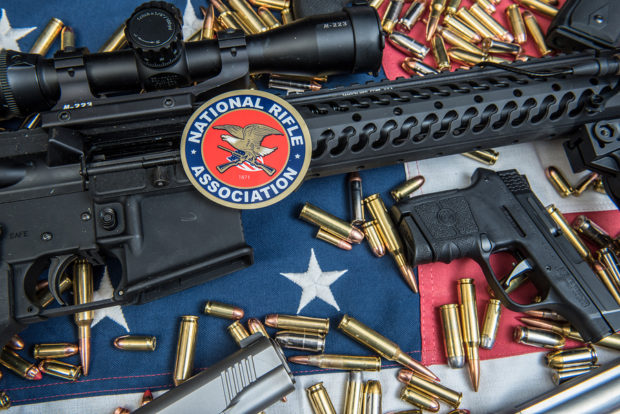Lloyd’s of London has directed its underwriters to terminate any insurance programs they have with the National Rifle Association (NRA) and to not enter into any new ones.
“The Lloyd’s Corporation has given very careful consideration as to whether syndicates at Lloyd’s should continue to insure programmes offered, marketed, endorsed or otherwise made available through the National Rifle Association of America,” Lloyd’s said in a statement.
Noting that NRA programs are now subject to an inquiry by the New York Department of Financial Services (NYDFS), the statement said the Lloyd’s Corp. has decided to end its association with any NRA business. It gave no indication of how much or what business Lloyd’s may have with the NRA.
The New York inquiry into NRA’s insurance, in particular its Carry Guard personal liability insurance program for members, has thus far resulted in fines for broker Lockton ($7 million) and insurer Chubb and its excess and surplus lines subsidiary, Illinois Union ($1.3 million). These two firms that administered and underwrote the Carry Guard program also signed agreements in which they acknowledged that the policies they offered violated state law and agreed to stop participating in membership programs with the NRA.
According to New York officials, Carry Guard is not the only NRA insurance program under scrutiny. From approximately January 2000 through March 2018, Lockton and the NRA offered at least 11 additional insurance programs through Lloyd’s to new and existing NRA members in New York and elsewhere.
Among the NRA programs from Lloyd’s now available on the NRA website are ArmsCare and Firearms insurance protecting firearms from theft or damage in excess of a homeowners’s policy; firearms’ instructor liability insurance; retired or off-duty law enforcement officer liability insurance and gun collectors’ insurance.
Prior to the New York probe and fines being announced, both Chubb and Lockton had indicated they were pulling out of the NRA insurance programs. In so doing, they joined MetLife (which had offered NRA members discounts on home, car, boat and motorcycle insurance), United Airlines and other companies in canceling their business ties with the gun owners’ organization.
The Carry Guard program provides NRA members with personal liability insurance protection in the event they are charged with a crime after defending themselves with a firearm. The program also includes a safety training component and a free one-year NRA membership. The insurance promises to mitigate the financial and legal consequences that might arise from armed encounters, even if the member did everything right.
DFS said the Carry Guard program “improperly provided” coverage in any criminal proceeding against the policyholder including coverage for bail money, premiums on bonds, attorney consultation fee and retainer expenses, expenses incurred for the investigation or defense of criminal charges, and costs taxed against the insured or the insured’s resident family member in a criminal proceeding arising out of a shooting.
New York DFS officials determined that some of the Carry Guard coverages themselves and limits are not permissible under the state’s law.
The NRA is also suing Lockton Cos., alleging the insurance broker breached its contract with the firearms lobbying group. The NRA suit, filed in the Eastern District of Virginia, alleges the New York investigation was “orchestrated” by the gun control organization Everytown for Gun Safety.
This is not the first time Lloyd’s has pulled away from a controversial market. Insurance Journal reported in June, 2015 that Lloyd’s had stopped insuring marijuana industry firms of any kind due to conflicts between federal and state laws over their legality. The company said then it had considered various requests with respect to insuring marijuana or marijuana related businesses, either medicinal or recreational in the United States, and determined that it no longer would do so until the drug is formally recognized by the U.S. government as legal.
*This story ran previously in our sister publication Insurance Journal.





















 Focus on Ski Guides After Deadly California Avalanche Could Lead to Criminal Charges, Civil Suits
Focus on Ski Guides After Deadly California Avalanche Could Lead to Criminal Charges, Civil Suits  State Farm Inked $1.5B Underwriting Profit for 2025; HO Loss Persists
State Farm Inked $1.5B Underwriting Profit for 2025; HO Loss Persists  From Skill to System: The Next Chapter in Insurance Claims Negotiation
From Skill to System: The Next Chapter in Insurance Claims Negotiation  Teens’ First Year on the Road Most Deadly
Teens’ First Year on the Road Most Deadly 










